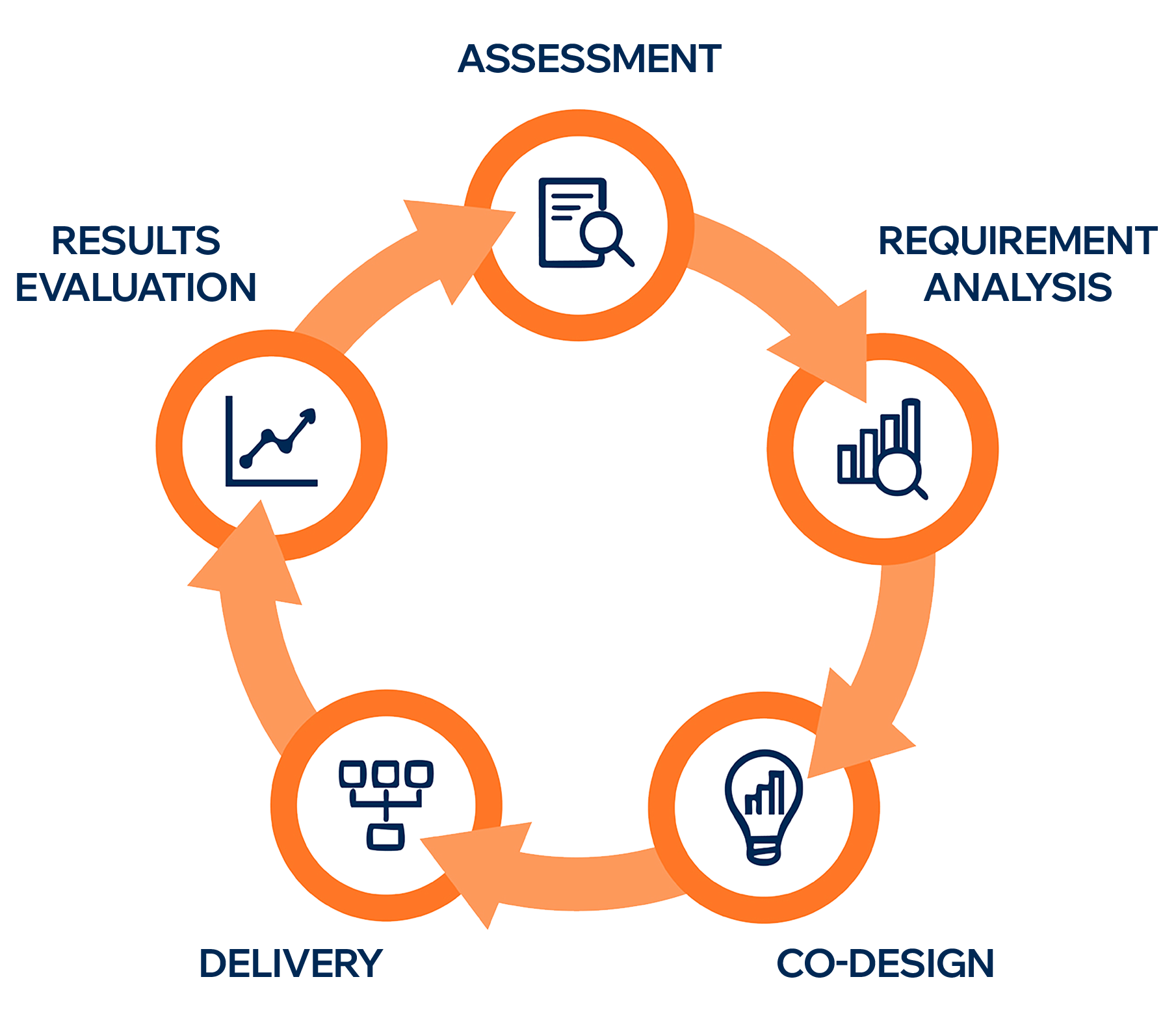
Custom Executive Education
Creating value through education
With over 40 years of experience in custom education, we build long-term partnerships with companies and institutions, developing learning journeys that are both relevant and impactful.
Each project begins with attentive listening to our clients’ specific needs and evolves into a shared journey based on continuous dialogue and co-creation, designed to respond to the uniqueness of each organization.
For us, learning goes beyond knowledge transfer — it is a key driver of value creation: it fosters people’s growth, strengthens organizations, and contributes to the development of the wider community.
Through our custom projects, we:
- Enhance competencies, guiding reskilling and upskilling pathways to align people and teams with the evolution of professional and organizational needs;
- Enable organizational transformation, supporting organizations in adapting to change, reshaping their business, and embracing the evolution of new ways of thinking and corporate values.
Highlights
- 3rdCustom Education FT Ranking 2025Worldwide
- 3rdCustom Education FT Ranking 2025Europe
- 40+Years of experience in providing Custom Projects
- 100+Top International Customers
- 260+Partners in 50 Countries
- 10+Top International Organisations
Co-designing the future of organizations
Every custom program is unique and fully tailored. Starting from each client’s specific needs, we design innovative learning experiences that align people’s growth with strategic goals.
Thanks to a structured cascade methodology, we are able to address complex needs by designing multidimensional learning pathways across methods, contents and target audiences.
SDA Bocconi Custom Programs
Corporate Impact© model

Business Development
- Marialuisa OrtiniDirector Business Development

- Stefka RakovaHead of Corporate Custom Programs

- Anna AkhtimankinaInternational Business Development Manager

- Giacomo CortiInternational Business Development Manager (Middle East, Asia)

- Thomas SneddonInternational Business Development Manager (Europe/Americas)

- Anna BorriBusiness Development Manager (Corporate and Financial Institutions)

- Silvia CuriBusiness Development Manager (Corporate and Financial Institutions)

- Nabila OukidBusiness Development Manager (Corporate and Financial Institutions)

- Sindy PadillaBusiness Development Manager (Corporate and Financial Institutions)

- Giulia ZangrandiBusiness Development Manager (Corporate and Financial Institutions – Government, Healthcare and Not for Profit)

- Davide BarbiBusiness Development Manager (Government, Healthcare and Not for Profit)


